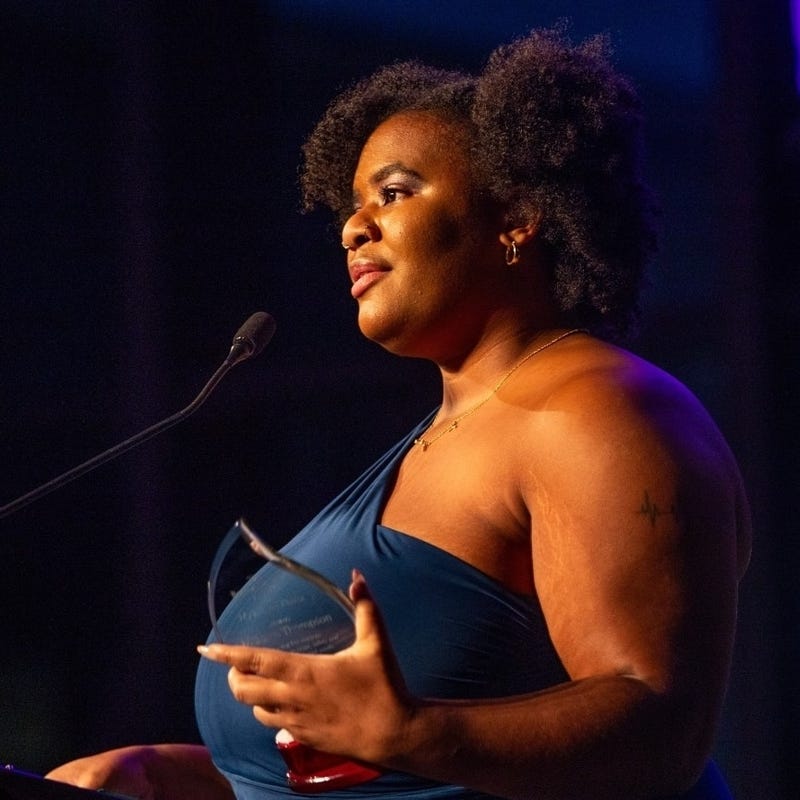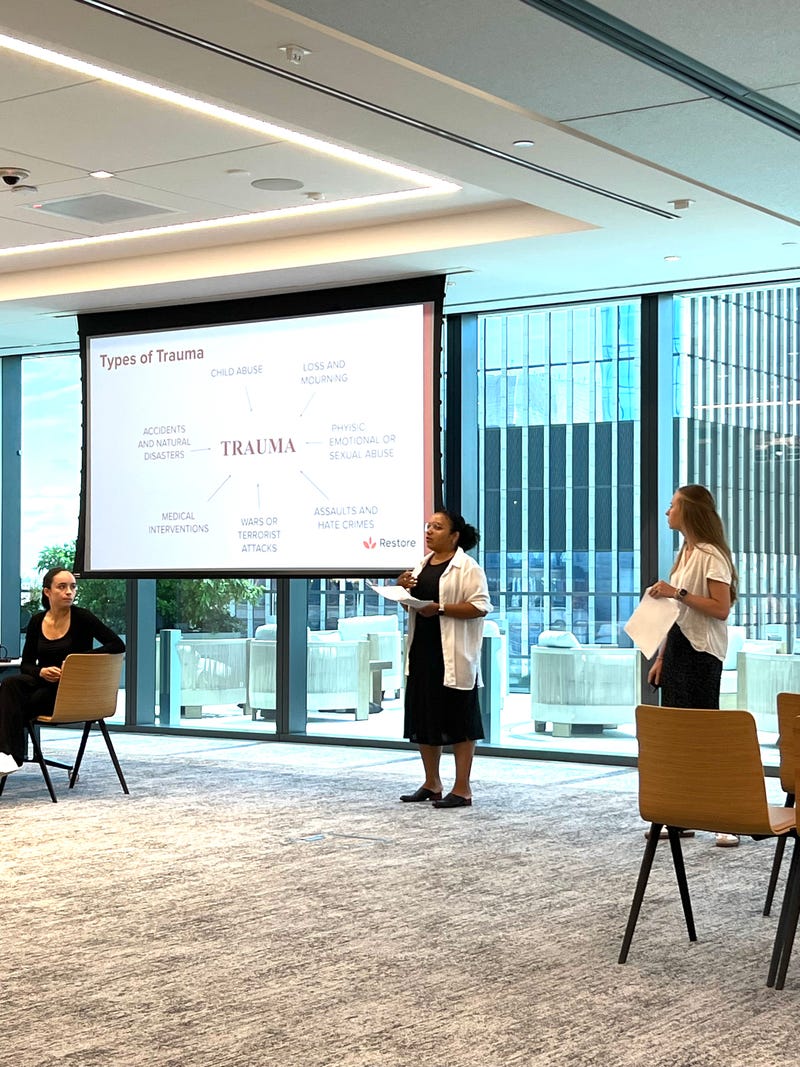
NEW YORK (1010 WINS) --- After a night at the movies with two friends, Melanie Thompson ran into a group of boys she and her friends had known. Little did she know, this would be the start of her trafficking at 12 years old.
“You would never know that I was being trafficked unless you were staring into my emotionless face,” said Thompson, now 28.
After waking up to learn she has been raped by one of those boys, Thompson found herself in a closet of a house in Queens, where a man told her she could not leave.
“One of the rules is that you don't speak, you don't look anyone in the eye, you don't speak unless spoken to,” Thompson said.
Melanie was human trafficked and forced into prostitution.
Two years.
That's how long Thompson spent trapped in human trafficking and prostitution.
She was able to be released from this entrapment and abuse, not by a rescue mission, but by being arrested on a bench warrant.
“I got put into handcuffs, placed in the back of a car, put in court and then automatically put into the foster care system," Thompson said. "It was horrific and it should never have happened that way."
Melanie began her advocacy at age 14 and since then has made major strides in driving changes to this underrepresented issue.
Branded as the silent epidemic, many people are confused by what sex trafficking actually looks like, but its appearance is actually more simple than you would think, adding to the complexity of the issue.
Wearing just a t-shirt, skinny jeans and sneakers, Thompson says you would never know she was even being trafficked.
“Unfortunately in high metropolitan areas it's hidden in plain sight,” Thompson said. “Traffickers are really good at making sure that the people they are exploiting blend into the crowd so folks don't ask questions.”

Today, over 27 million people worldwide are being trafficked, according to the U.S. State Department.
The National Human Trafficking Resource Center ranks New York State fourth in the country for reported cases of sexual exploitation.
In the last 15 years of her advocacy, there have been key pieces of legislation that have been passed such as FOSTA-SESTA, the Stop Enabling Sex Traffickers Act, as well as the Equality Model Law, a legal framework that aims to end exploitation and create a more just society for sex workers.
Despite these accomplishments, advocates face a long road ahead.
With a movement to fully decriminalize sex work, Thompson argues this will only create more issues and lead to an increase in sex trafficking.
“They're putting it under this guise of trying to make it safer. But the reality is that it's going to remove penalties for exploiters and sex buyers,” Thompson said. “I want people to be more aware of this movement, and I want folks to do what they can to vote against that.”
Human trafficking is a multi-billion-dollar industry, generating about $150 billion in illegal profit annually.
“The system of trafficking does not discriminate on race, gender or class. I want folks to know that anybody can be affected,” Thompson said.
“It's not just during the trafficking experience that I had to be quiet... It lasted for many years. After that it's hard to undo some of the things that traffickers and pimps instill in you.”
Organizations like Restore NYC offer assistance such as housing, trauma counseling and economic empowerment. Since 2009, the non-profit has served 2,500 people affected by trafficking and those still at risk.
Thompson urges everyone to do their research and do their part, as even the person sitting next to you on the subway, wearing skinny jeans, a t-shirt and sneakers could be in danger from trafficking.
For more information on human trafficking and how you can help, go to RestoreNYC.org.
